Personalization for eCommerce: What it is, benefits, and examples
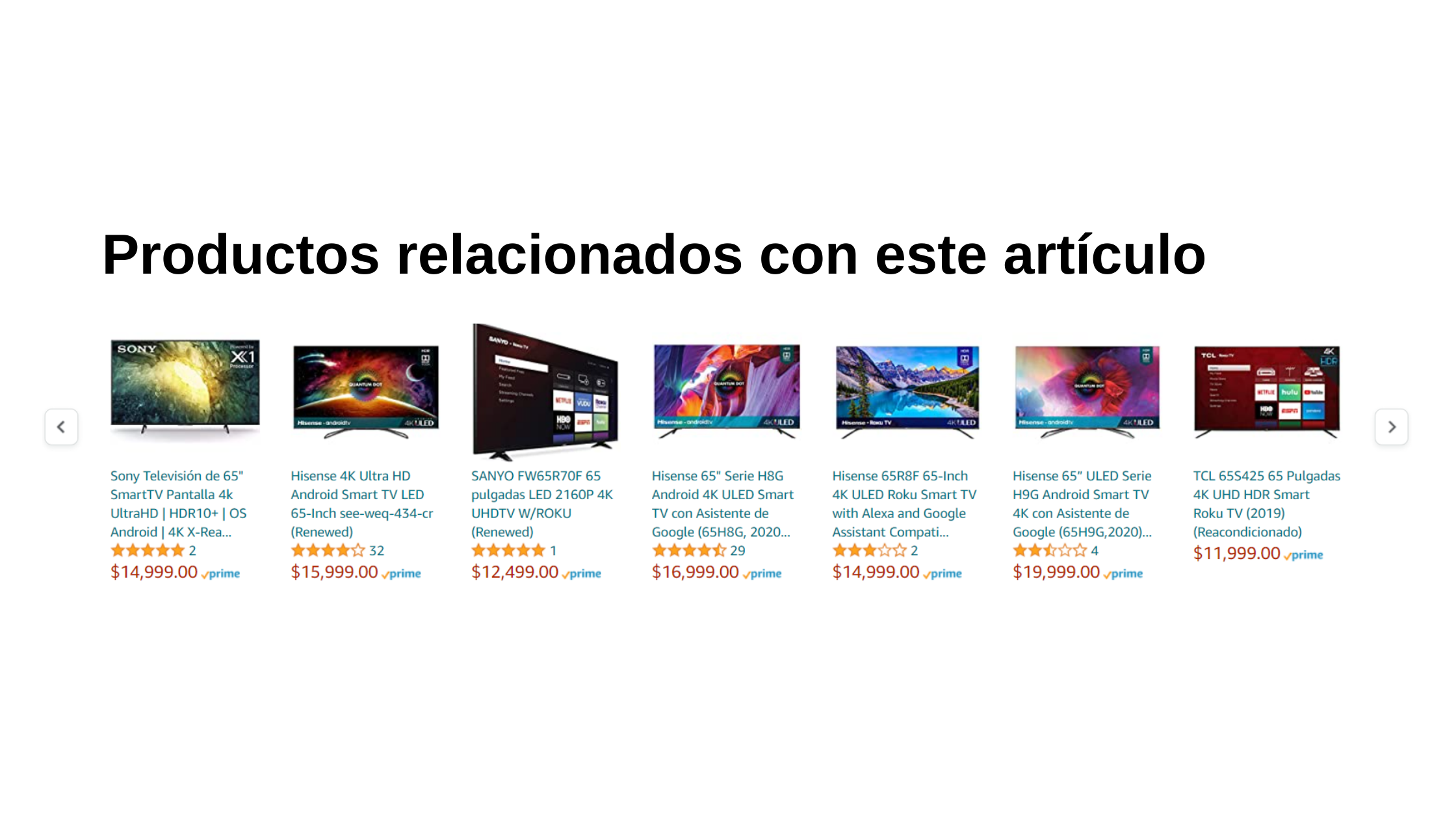
Personalization in eCommerce is about delivering personalized user experiences to your customers by showing them content, product recommendations, and offers based on their past behaviors such as searches, purchase history, demographics, and personal user information.
If you are a regular shopper on Amazon, you have probably noticed that their online store often shows products very similar to the ones you have previously viewed while browsing their site.
If one day you are looking for a new television for your living room on Amazon, within a few hours, you will receive an email with several similar TVs in terms of brand, size, and specifications. And when you go back to browsing their site, you will see several options for TVs similar to the ones you previously viewed.
As you explore various product options, you choose the television that you like the most and proceed with your purchase.
It almost seems like Amazon knows exactly what product we need, but this is not a coincidence.
This is the result of artificial intelligence algorithms and deep learning that analyze your searches, products you have previously viewed, items you have added to your cart, and your purchases in order to suggest products that align with your interests.
This is called eCommerce personalization.
What is eCommerce personalization?
Personalization in eCommerce is about delivering personalized user experiences to your customers by showing them content, product recommendations, offers based on their past behaviors such as searches, purchase history, demographics and personal information.
Through artificial intelligence algorithms and deep learning, an eCommerce platform is capable of learning which products are most interesting to each individual user and then repetitively displaying them.
In simple terms, personalization in eCommerce means showing the right product to the right customer in order to increase conversion rates for your online store.
What are the advantages of personalization in eCommerce?
By delivering a personalized experience to users on your online store, you can retain and foster loyalty among your current customers while increasing the number of conversions to sales.
To confirm this, we only need to look at the following statistics:
Marketers see a 20% increase in sales when they personalize the user experience. (Monetate)
86% of marketers have seen a measurable improvement in the results of their personalization campaigns. (Evergage)
Personalization can reduce customer acquisition costs by up to 50%. (Adweek)
Companies that invest in advanced personalization report a $20 return on investment for every dollar spent. (Clicz)
As you can see, there is more than enough data to prove that personalization in eCommerce works.
Real examples of personalization in eCommerce.
We already told you what personalization in eCommerce is and its benefits. Now, we would like to give you some practical examples of how you could use it in your eCommerce.
Personalization on the homepage
Surely the homepage is the most popular page of your eCommerce. This is the perfect place to showcase products, promotions, and offers.
Every time a user visits the homepage of your online store, they should see products that are highly relevant to their own interests. Some sections that should appear on your homepage are: recently viewed products, suggested products for you, and recommended promotions for you.
The following images are some examples of personalized sections that Amazon has on its homepage. You should aspire to achieve this level of personalization in your eCommerce.







Related Products
To encourage users to add more products to their cart, you can show them related and/or complementary products on the product pages.
For example, Zappos suggests to its users what clothing items can be paired with the shoes they are viewing, as well as showing similar products that other users are viewing.
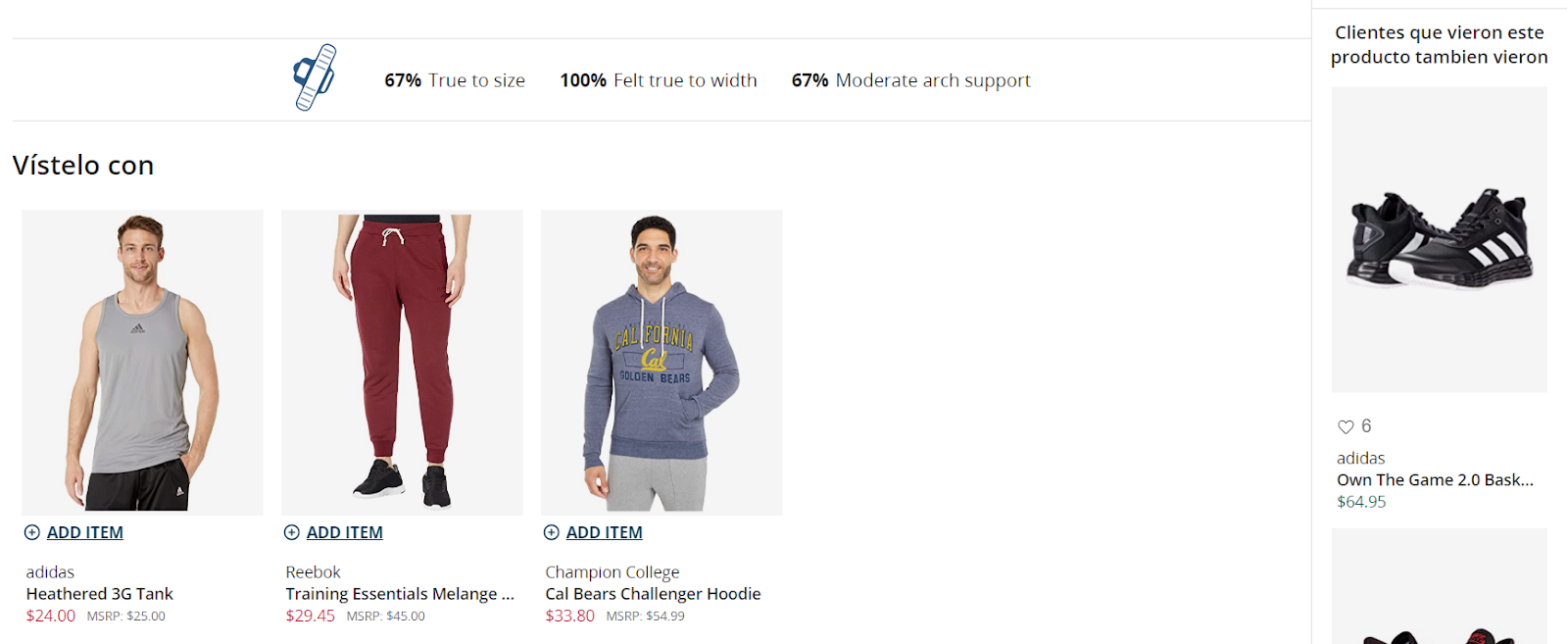
Segmented messages
Let's suppose you want to promote a new blue shoe from your product catalog among women aged 20 to 30.
With the right personalization tool, you could create a segment of users who are women aged 20 to 30 and have previously viewed blue shoes within your online store. You could then send this segment a promotional email showcasing the new product or even display a specific banner to them the next time they browse your online store.
When you send the right message, with the right product, to the right customer, there is a high probability of conversion.
Retargeting
It is the process of displaying advertising on Google Ads or Facebook Ads to users who have visited your site before.
Tools like the Facebook Pixel allow platforms to identify which products users have visited before, and then show them ads with similar products to that same user.
You could also display ads with products that the user has added to their cart or, in some cases, abandoned without making a purchase.
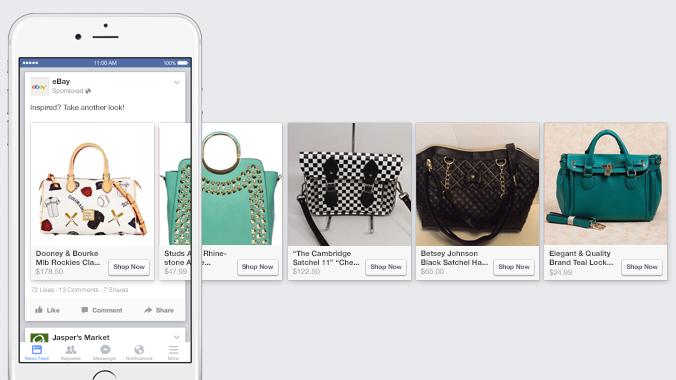
Save Product List
Some of your users may repeatedly purchase the same products. This occurs especially in online grocery stores when customers buy the same product for their pantry every week.
This way, your customers will be able to make their product purchases quickly and easily.
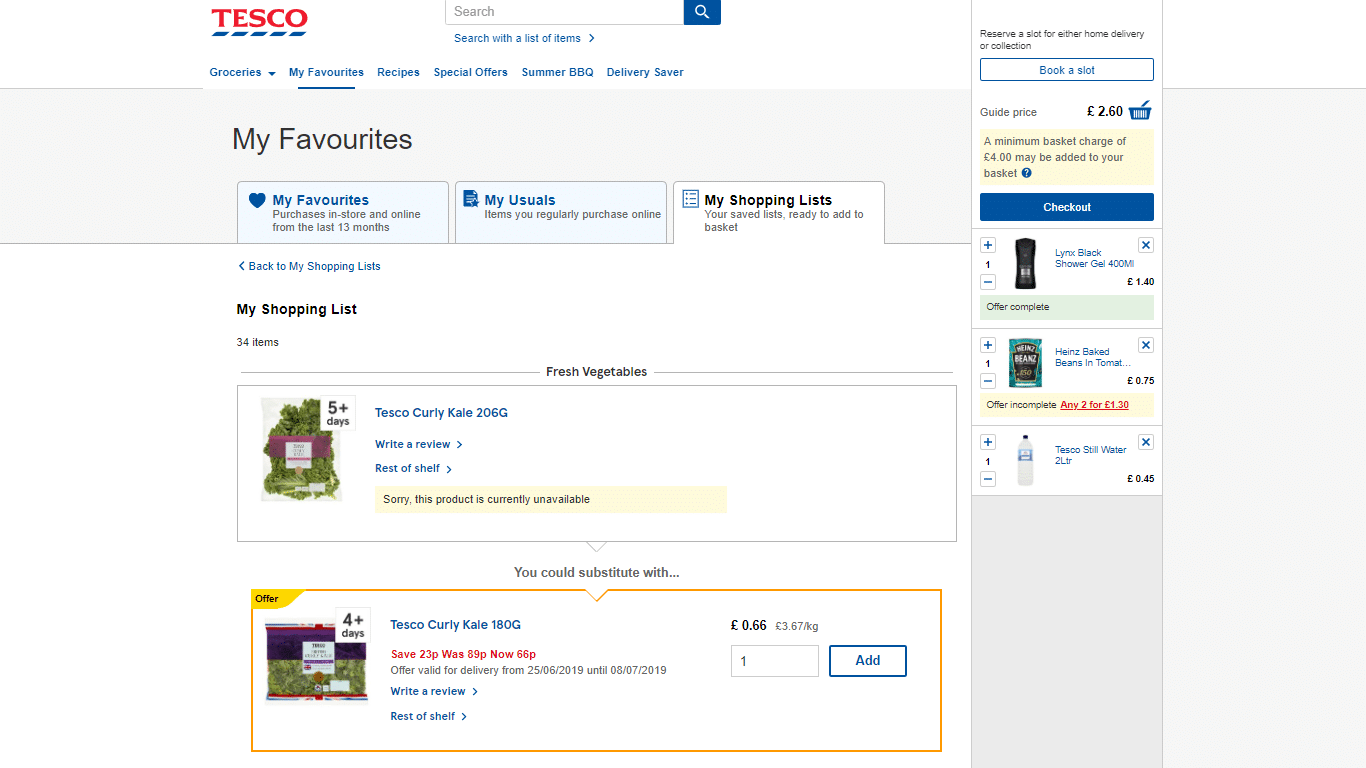
Cart recovery email
If a user abandons their shopping cart, you can send them a reminder email that they haven't completed their purchase.
In that same email, you could display other options for similar products or even include a discount coupon to try to encourage conversion.
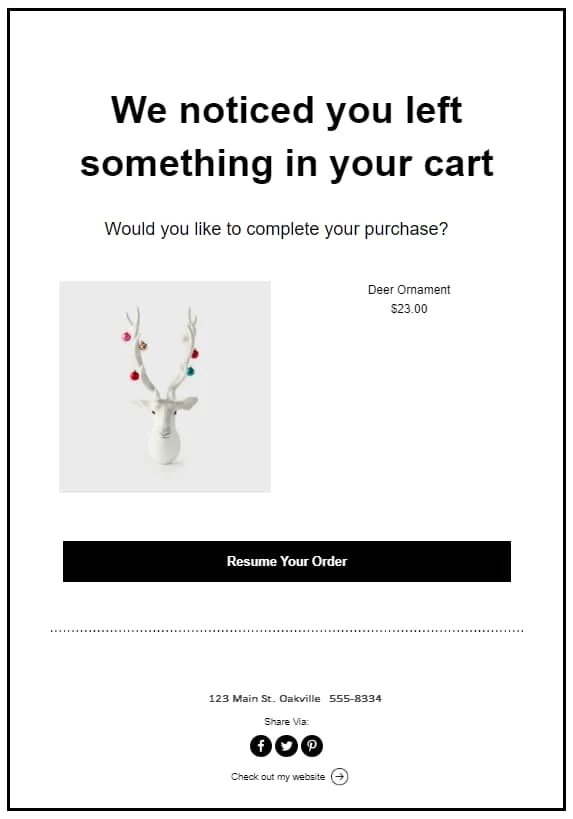
How to develop a personalized experience on my eCommerce?
Now, the big question is "how do I achieve personalization in my eCommerce?"
To implement a personalized user experience on your eCommerce, you can create in-house solutions and develop your own artificial intelligence to identify consumption patterns in your customers and recommend the best products for them.
However, we do not recommend this approach. Your IT team will consume a lot of time and resources trying to develop their own technology from scratch.
In the market, there are dozens of pre-developed technologies that you can take and use on your site. The technologies that recommend content to users based on their behaviors are called personalization engines.
Personalization Engines for eCommerce
The following technologies we are going to present are personalization engines that were recognized as leaders by Gartner in 2020. Gartner is a consulting and IT research firm that conducts studies on various technologies in the market to assist IT leaders in adopting new and improved technologies.
Adobe
With Adobe's personalization technology, you can determine what works best for each shopper. By leveraging data from anonymous visitor accounts, you can identify the most relevant content. Through machine learning, you can automatically deliver that content to all visitors across web, mobile, and email channels.
Dynamic Yield
Dynamic Yield is the main personalization tool that we recommend at Gluo to our eCommerce clients. It is the experience optimization platform that delivers the best product recommendations for your customers across various channels, driving conversion to sales.
Evergage
Evergage es una tecnología de Salesforce. Al combinar análisis de comportamiento en profundidad y aprendizaje automático avanzado con datos de fuentes existentes, Evergage permite a las empresas obtener una visión integral de cada uno de sus clientes y prospectos, y usar esos datos para brindar experiencias individualizadas y de máxima relevancia.
Certona
From sophisticated A/B testing to AI-driven personalization, Certona's technology delivers personalized experiences to your customers, resulting in increased engagement, conversions, and value.
If you currently aim to deliver a personalized experience to each of your customers to drive conversion to sales and enhance customer retention, Gluo can assist you in selecting the best personalization engine for your company based on its needs, goals, and budget.


